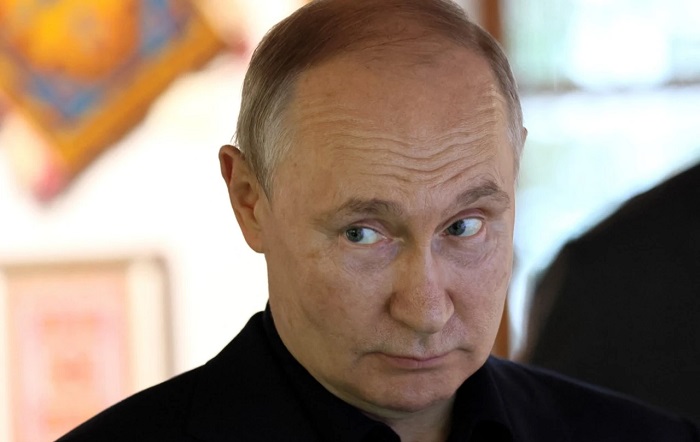The EU warned Thursday that Russia has become unstable and more dangerous following the brief mutiny by its Wagner mercenaries that exposed President Vladimir Putin as weaker than previously thought.
European Commission President Ursula von der Leyen said the “aftershocks” of the Wagner rebellion were still playing out.
“A weaker Putin is a greater danger,” EU foreign policy chief Josep Borrell said as he arrived for a Brussels summit.
NATO chief Jens Stoltenberg, also attending the summit, said that while it was “too early to draw any final conclusions”, Wagner’s June 24 mutiny and march towards Moscow revealed “cracks and divisions” in Russia.
Western leaders, including many of those at the European Union summit, reiterated that the tumult in Russia was an internal matter in which their governments played no role.
Instead, summit discussions were focused on efforts to “double down” on military and financial support for Ukraine as it fights back against Russia’s invading forces, von der Leyen said.
Ukrainian President Volodymyr Zelensky was to participate in the summit via video link.
But EU countries neighbouring Belarus, where Wagner boss Yevgeny Prigozhin has gone into exile, expressed fear that many of his mercenaries may also take up a Kremlin offer to join him.
“We are extremely concerned about the developments in Belarus,” said Lithuanian President Gitanas Nauseda.
“The fighter groups or these serial killers as I call them… they could emerge in Belarus at any moment and nobody knows when they could turn against us,” he said.
Estonian Prime Minister Kaja Kallas said the relocation only reinforced her view that “Belarus and Russia together are dangerous and will be dangerous”.
There are “cracks” on the Russian side, “so what we have to do is to keep the pressure on Russia” through sanctions, she said.
While Moscow has not let up on its war in Ukraine and strived to project a facade of normalcy, EU officials predicted Putin would take action inside Russia to try to restore his image of holding unquestioned power.
“Putin has lost the monopoly of force,” Borrell said, adding that “I suppose that Putin will be in cleaning mode internally, and a more assertive mode”.
He said “all intelligence services in the European Union” are analysing the scenarios that could grip Moscow as “now we have to look at Russia as a risk because of the internal instability”.
– Migration controls –
The European Union summit was also discussing ways to bolster controls on irregular migration flows into the bloc, two weeks after at least 82 asylum seekers drowned in a boat that capsized off Greece.
“A crisis today somewhere means more migrants tomorrow because there is a direct relationship between irregular migrations, people desperate to try to reach our shores, putting their lives at risk,” Borrell said.
The June 14 boat sinking highlighted the Mediterranean as the main route for asylum seekers trying to reach Europe, and what rights groups claim is increasingly perilous conditions for such crossings because of “Fortress Europe” policies.
Greek Prime Minister Kyriakos Mitsotakis, in Brussels for the summit, rejected accusations by some of the boat survivors that Greece’s coast guard caused the capsizing by tying a rope to their vessel and trying to tow it away from Greece at high speed.
“It is very, very unfair to point the finger at the Greek coast guard,” he said.
He said the coast guard’s priority is “not just to protect the external borders of the European Union but to assist everyone who’s actually at risk of drowning”.
He stressed, however, that under his mandate — which Greek voters just renewed for a second term — his country had “reduced migration flows by 90 percent” in the eastern part of the Mediterranean.
The Brussels summit was to press Tunisia — a launching point for many migrants, including many from sub-Saharan Africa, trying to get to Europe — to accept Western conditions to unlock $3 billion in IMF and EU financial assistance.
Tunisia, though indebted, has resisted, with its President Kais Saied saying he would not bow to IMF “diktats”.
Do you have a story or an opinion to share? Email us on: dailyexpressug@gmail.com Or follow the Daily Express on X Platform or WhatsApp for the latest updates.

